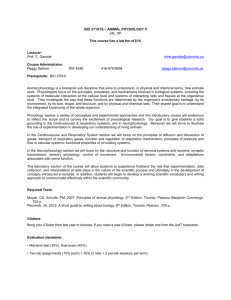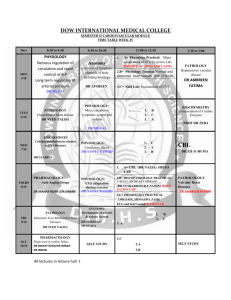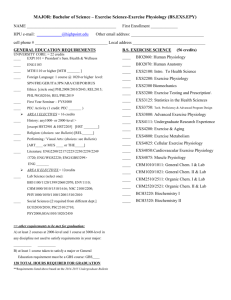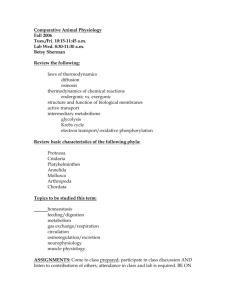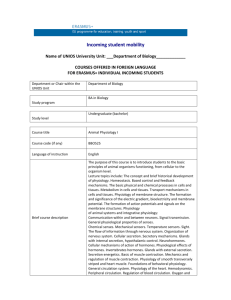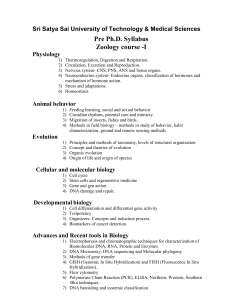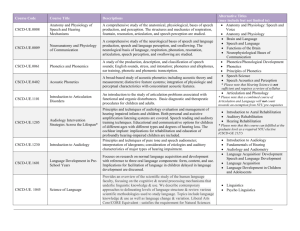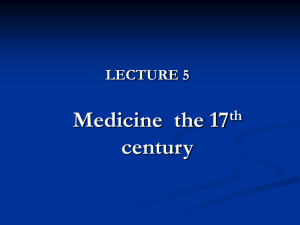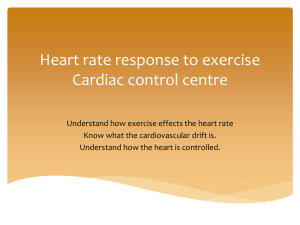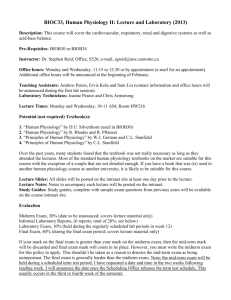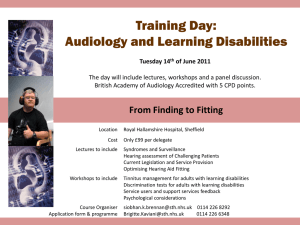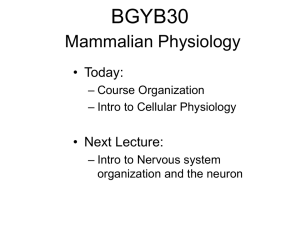Physiology Diagnostics & the Atlas of Variation
advertisement
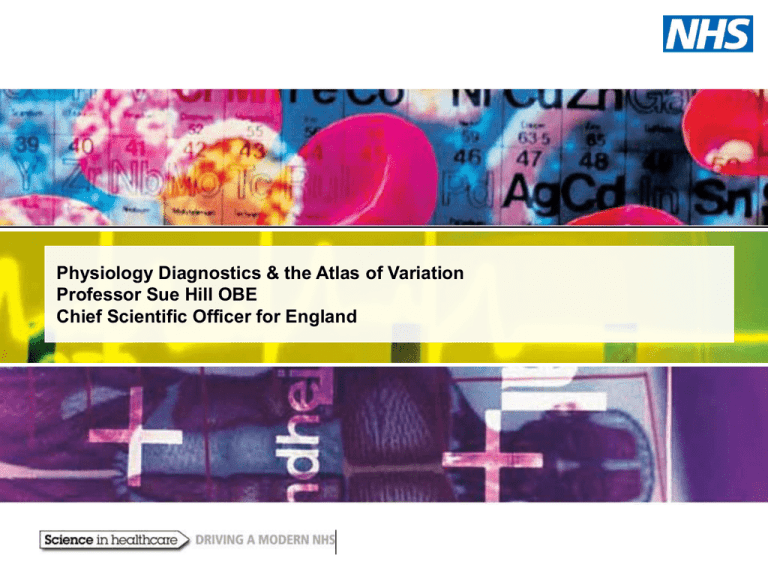
Physiology Diagnostics & the Atlas of Variation Professor Sue Hill OBE Chief Scientific Officer for England Physiology Diagnostics • 8 Clinical services – – – – – – – – Audiology Cardiac Physiology Gastrointestinal Physiology Neurophysiology Ophthalmic & Vision Science Respiratory Physiology & Sleep Physiology Urodynamics Vascular Technology • > 300 different tests • > 15 million tests undertaken pa, demand growing • Key component of most clinical pathways What does the Atlas tell us? Test Variation After exclusions Audiology assessments * 11x 5x New born hearing tests o 4x 2.5x Sleep studies * 79x 23x COPD patients with FEV recorded # 1.3x 1.2x Urodynamic tests * 144x 23x Electrocardiography * 34x 4x Diagnostic invasive electrophysiology * n/a 829x Peripheral neurophysiology * 124x 37x * national data collected monthly since 2008 # from GP database (QoF) data O from National Screening Programme data Challenging variation - Audiology • Data shows a 11 fold difference between highest and lowest areas (still 5 fold after exclusions) • Why is Norfolk so different to Suffolk? Or Hillingdon and Hounslow? - Can we account for this variation? • Undiagnosed and untreated audiology issues can profoundly affect an individual’s ability to communicate – and so the rest of their health Interventions to reduce unwarranted variation • Providing a ‘feedback loop’ challenge to the commissioning system – empowering clinicians in services and informing contract management • For patients: ensuring a fresh focus on the identification of undiagnosed, and untreated conditions and the prevention of disease progression • Improving adoption of new technology & service redesign • Quality assurance and peer review systems (such as IQIPS – Improving Quality In Physiological Sciences) • Tackling workforce shortages Equipment Management & Calibration Performance to SOPs & guidelines Knowledge management Diagnostic services MDT delivery Advice and expertise Technical & Clinical interpretation Quality Systems & Assurance Diagnostic services in NHS – getting it right Getting it right – Mike Richards’s Vision …we need to harness robust and timely information from other sources to provide a more rounded picture of a trust…. Accreditation and peer review already play an important role in quality improvement …. I strongly believe that such schemes have a key role to play in the future of hospital inspection. We need to use information from these schemes to feed directly into CQC monitoring processes and the development of trust-specific key lines of enquiry for use at inspections.‘ Professor Sir Mike Richards, Chief Inspector of Hospitals Taking the Atlas forward in future • The Atlas of Variation represents a subset of diagnostic procedures – those that are monitored and recorded nationally • Some important diagnostics do not have sufficient data to build a variation picture – eg rate of EEG testing for epilepsy • Need to focus on impact on patient experience and outcomes when selecting additional indicators Any questions?
